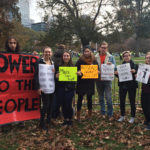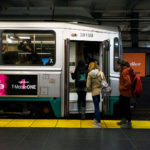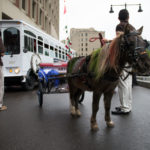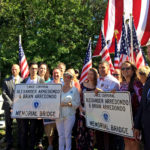Boston University researchers are poised to move into the forefront of the battle against Ebola, Zika and other emerging life-threatening diseases, as the university’s National Emerging Infectious Diseases Laboratories (NEIDL) recently received a long sought-after permit from the Boston Public Health Commission to start this kind of research at its South End facility.
“Emerging diseases are different than just standard infectious diseases,” Ronald Corley, the director of NEIDL, said. “These are diseases that you see new in human populations, or diseases which have changed geographic location, or experienced a sudden change in incidence.”
The lab’s approval to conduct Biosafety Level 4 research comes after a long resistance effort by community leaders concerned about safety. Tito Jackson, the runner-up in this year’s Boston mayoral election, has been critical of Mayor Martin Walsh’s approval of the lab.
In a tweet from Dec. 6, Jackson said, “Mayor [Walsh] shows he doesn’t care about community voice/safety issues raised by [the Massachusetts Nurses Association]” about the lab’s new research capabilities.
Corley said he is confident that NEIDL’s design will effectively protect lab workers and Boston citizens from any potential safety risks.
“The safety record in [Biosafety Level 4 labs] is unparalleled,” Corley said. “In all the world, there has never been a lab worker infected in a Biosafety Level 4 lab and there has never been a community infected.”
In addition to safety concerns, Corley said opponents questioned whether or not the lab would conduct classified or secret research.
“The answer to that is absolutely not,” he said.
Corley added that BU students, employees and faculty undergo a series of background checks before they are allowed to work in the NEIDL, and are subject to health screenings and drug tests while working there.
“Once people are in the building, they can only go into the spaces that they are permitted to work in,” Corley said.
The NEIDL has focused on community outreach for the last three years, Corley said, working with the public to help them understand the lab’s work and safety measures.
“We run tours all the time,” Corley said. “Anybody who wants to come in and see the building, we want to bring them in.”
Corley said the exhaustive independent risk assessment that opponents to the lab demanded confirmed that the NEIDL building and its science was not a risk to Bostonians.
“That four-and-a-half-year long risk assessment proved that these labs are incredibly safe, and put into scientifically valid terms why these laboratories are safe,” said Corley.
Gloria Waters, the associate provost for research at BU, pointed to the value of conducting this kind of research at BU.
“The NEIDL takes advantage of expertise across campuses … There is potential in these collaborations to unlock science and new discoveries,” Waters said. “These discoveries will be translated into the development of diagnostics, therapeutics and vaccines for the public’s health.”
Waters noted that a lab in a university setting not only focuses on advancing research, but also on teaching.
“Another part of the mission of the NEIDL is to train the next generation of scientists and researchers,” she said.
Several BU students said they were happy to see the advancement of the NEIDL, despite safety concerns within the community.
Joe Hamilton, a sophomore in the Sargent College of Health and Rehabilitation Sciences, said he thinks it makes sense for BU researchers to conduct this level of epidemiological study.
“It establishes BU in the public eye as one of the world leaders in research,” Hamilton said. “Some of the most qualified researchers and instructors in the world also work at BU as it is, so who else is more fit to oversee the research?”
Emily Fraser-Read, a sophomore in the College of Engineering, said this research is a source of pride and accomplishment for BU.
“It is amazing that my school is going to be doing some amazing research that could help so many people in the future,” Fraser-Read said. “The work NEIDL is doing could change so many peoples’ lives. I can’t wait to see what comes of it.”
Hannah Cuthbert, a sophomore in the College of Arts and Sciences, said she thinks the permit is a positive step for the university, but also expressed safety concerns.
“Conducting the research itself is definitely the right thing to do,” Cuthbert said. “The only concern I have is the location and certain dystopian worries regarding certain viruses or toxins escaping and spreading. Overall though, if they say it’s safe and has been tested, we should not worry too much.”




